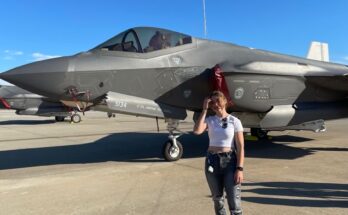
A United States soldier represents more than just a uniform or a title — they embody the values, strength, and sacrifice that define the American military. Every soldier, regardless of rank or background, commits to serving and protecting the nation, often at great personal cost. The journey to becoming a U.S. soldier is not easy, but it is one built on discipline, courage, and a deep sense of duty.
The life of a U.S. soldier begins with training. From the first day at boot camp, recruits are introduced to a world that demands both physical and mental toughness. They learn to follow orders, work as a team, and adapt to challenging conditions. Basic training is not just about fitness; it shapes character and instills the core values of the Army: loyalty, duty, respect, selfless service, honor, integrity, and personal courage. These principles guide soldiers through every mission, whether they are stationed at home or deployed overseas.
Serving as a soldier means being part of something bigger than oneself. Soldiers come from all walks of life, representing every state and background, yet they share one mission — to defend the freedoms and safety of the American people. They operate in diverse environments, from combat zones and peacekeeping missions to humanitarian relief efforts. Many soldiers are deployed to areas affected by conflict or natural disasters, where they not only fight but also help rebuild communities, distribute aid, and protect civilians. Their role extends beyond warfare; it’s about preserving peace and stability wherever they serve.
The sacrifices made by U.S. soldiers are significant. Time away from family and friends, long deployments, and the constant risk of danger are part of their daily reality. Many face emotional and physical challenges long after returning home. Despite these hardships, soldiers remain committed to their oath — to defend the Constitution and the country it protects. Their resilience and dedication inspire respect and gratitude from the nation they serve.
Modern soldiers also adapt to new forms of warfare and technology. Today’s military relies heavily on advanced systems, cyber defense, intelligence gathering, and drone operations. U.S. soldiers must be highly trained and adaptable to meet the demands of modern combat and defense strategies. Whether they serve in the Army, Navy, Air Force, Marines, or Space Force, each branch plays a vital role in maintaining national security and global stability.
Beyond the battlefield, the legacy of a U.S. soldier is built on leadership and service. Many continue to serve their communities after leaving the military, using their experience to contribute in public service, education, or business. Veterans carry with them the same values that guided them in uniform, continuing to strengthen the nation in civilian life.
In essence, a U.S. soldier symbolizes honor, bravery, and commitment. They stand as a reminder that freedom is not free — it is earned and protected by those willing to serve. Their courage and sacrifice ensure that the ideals of liberty and justice endure for generations to come


